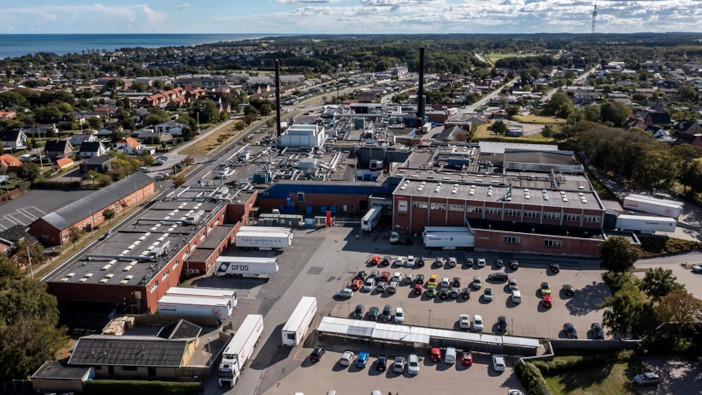Danish Crown has announced the closure of its Sæby abattoir following a decline in pigs being supplied for slaughter. The closure will see 800 employees at the northern Jutland site face job loses.
The company explained that the number of pigs supplied for slaughter in Denmark on a weekly basis has declined by more than 10% over the past year, leaving it with excess abattoir capacity.
Despite rising retail pork prices, inflation has created financial challenges for Danish farmers leading to the closure of some livestock operations, while others are opting to export pigs at 30kg due to high demand from Poland and Germany, lead to a significant reduction in pigs being sent to slaughter in Denmark, it added.
Per Laursen, VP Production for Danish Crown, said: “It is very sad that we have to say goodbye to so many skilled and loyal employees, but we are forced to react to such a marked decrease in the amount of slaughterings. Now, our surplus capacity is costing us more than DKK 300 million a year, and it would be irresponsible in relation to the company and our owners if we didn’t take the steps which are necessary to address this challenge.”
To reverse the contraction of Danish pig numbers and to protect jobs at its five other abattoirs in Denmark, Danish Crown acknowledged that it needs to increase the settlement price paid to its cooperative owners for their supplies of pigs so that it matches Germany prices and ensures farmers can make money from fattening pigs for slaughter.
“What is so frustrating about this situation is that our employees’ performance has been exemplary, but in our industry, it is imperative that the abattoirs are run with very high-capacity utilisation, because otherwise it simply becomes too expensive to slaughter every single pig. But it’s a heavy decision for us all,” Mr Laursen added.
Although 800 employees face losing their jobs in Sæby, Danish Crown is expecting to take on 450 new employees at its Rinsted and Sønderborg abattoirs within the next six months. The company is offering to cover travel or relocation subsidies for those willing and able to move to the other sites.
Jai Valeu, group CEO of Danish Crown, said: “After several years of growth driven by strong exports to China, we knew there was a risk that the production of pigs for slaughter might fall, so the decision to propose the closure of the abattoir in Sæby is based on a careful and in-depth analysis of the situation. However, our Feeding the Future strategy is unchanged, because our future growth is not only going to come from slaughtering more pigs, but from increasing the value of our meat and the production of attractive and more sustainable foods.”
Danish Crown is also offering alternative support to employees, in the form of courses and training to help them to find other jobs.
Mr Laursen said: “Many of our employees will be left feeling that the rug has been pulled from under their working life. Therefore, today we are contacting the trade union NNF (which represents skilled and unskilled employees within the slaughtering and meat industry, among others), the Municipality of Frederikshavn and the North Denmark Region so that together we can do as much as possible to help them. Abattoir workers fortunately have a reputation for being stable and reliable workers, and after the dismissals in Sæby six months ago, almost 60 per cent of our former employees have found new work, but it doesn’t happen automatically.”




